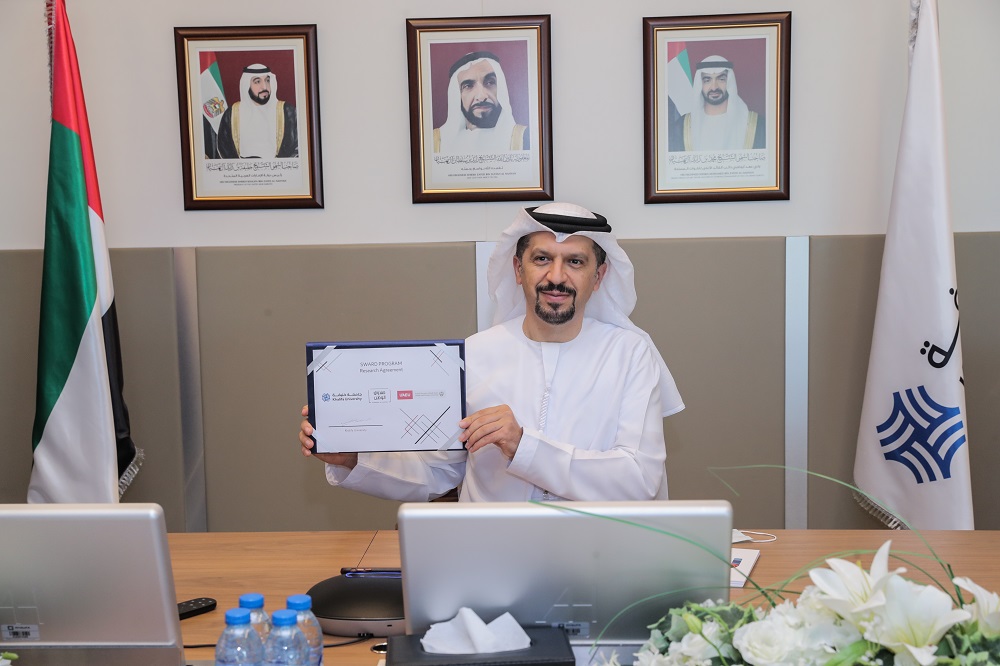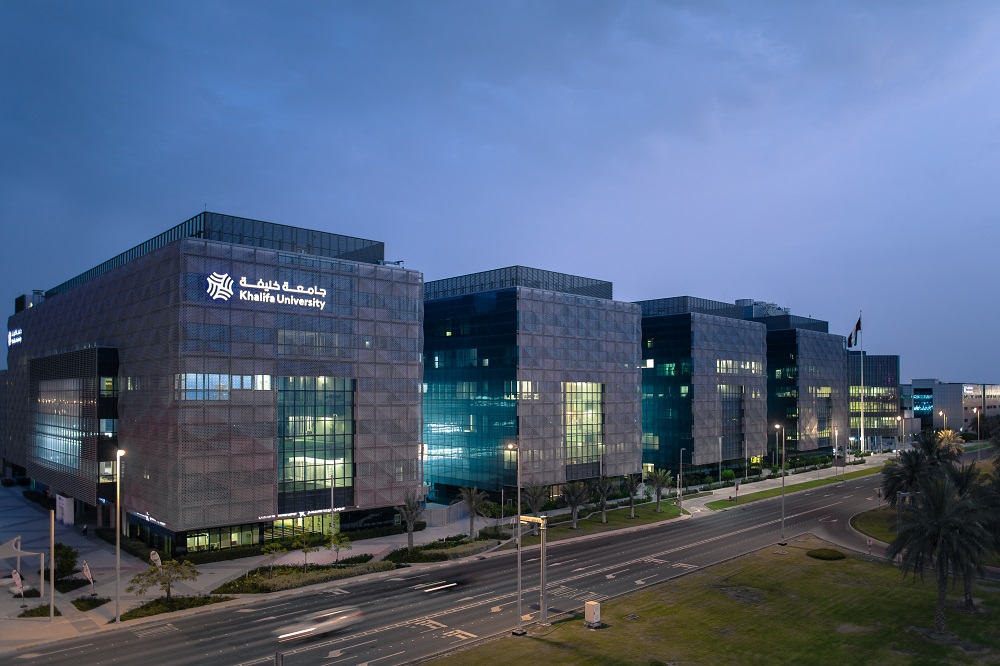In support of the UAE taking the lead in the realm of Artificial Intelligence (AI), Khalifa University has signed a sponsored research agreement with Sandooq Al Watan and United Arab Emirates University with the goal of advancing cognitive computing using novel architecture and high-grade materials. The project was awarded under the SWARD program, which aims to create tangible social and economic outcomes in the country by bridging the gap between academia and industry.
Titled: ‘Doped Phase Change Material Nanowires for Memory Applications,’ the project, which has a budget of AED 1 million, will explore the potential of developing new materials to progress AI processing and in-memory applications in the area of ‘non-von Neumann architecture.’
Discussing the nature of the project, His Excellency Ahmed Fikri, Acting Director General of Sandooq Al Watan said: “with researchers reporting the first ever in-memory computing , we see the future of cognitive computing in synchronised processing and memory functions. This in-memory computing relies on nano-resistive memory devices made from specific materials, with ‘Germanium Telluride’ (GeTe) being one of the most viable. This project has been established to explore the potential for scalability of this material into nanowires to create substantive leaps in AI capacity.”
He continued: “We are blessed with having some of the top minds working in the realm of AI, robotics, machine learning and indeed all areas of Fourth Industrial Revolution technology in our country. Researchers from United Arab Emirates University and Khalifa University are at the forefront of the field and we anticipate that this project will see major strides being made in harmonising processing and memory in AI, furthering the position of the UAE in this rapidly evolving sphere.”
Prof. Ahmed Murad, Associate Provost for Research from United Arab Emirates University – emphasized the leading role of the University in conducting high quality research to support the national agenda. He added that this project with Sandooq Al Watan and Khalifa University comes in line with UAEU’s plan to develop the collaboration with other organizations to carry out joint research, especially in the field of Artificial Intelligence, which represents a vibrant area of research at the university and a reliable fundamental pillar for the development of scientific research.“
Dr. Arif Sultan Al Hammadi, Executive Vice-President, Khalifa University of Science and Technology, said: “We are delighted to be part of this project that will fabricate devices using nanowires and investigate their electrical performance. Faculty experts at Khalifa University’s research centers have the capability and expertise to deliver not only integrated system-on-chip (SoC) solutions but also other advanced technology innovations in intelligent systems, robotics, and machine learning to drive innovation. We believe our support will remain integral to the success of this project and we foresee similar collaborations with more research organizations in the future.”
The project will be led by Principal Investigators Dr. Haila M. Aldosari, Assistant Professor, Physics, at UAE University and Dr. Baker Mohammad, Associate Professor, Electrical and Computer Engineering at Khalifa University. They will work together with a team of research associates and postdoctoral fellows, while the research project will present internship opportunities for UAE national students.
The aim of this latest SWARD project is the optimization of material, device, and architecture to enable in-memory computing for Internet of Things (IoT) devices and Artificial Intelligence (AI) applications. This project explores the development of the phase change material germanium telluride (GeTe) for resistive memory, enabling efficient in-memory computations with extremely low power and high-density memory. The project will also investigate the functionality of GeTe material using diameters of 10 nanometers or less – tolerances that have never been achieved before.
Staff Report
25 October 2020







